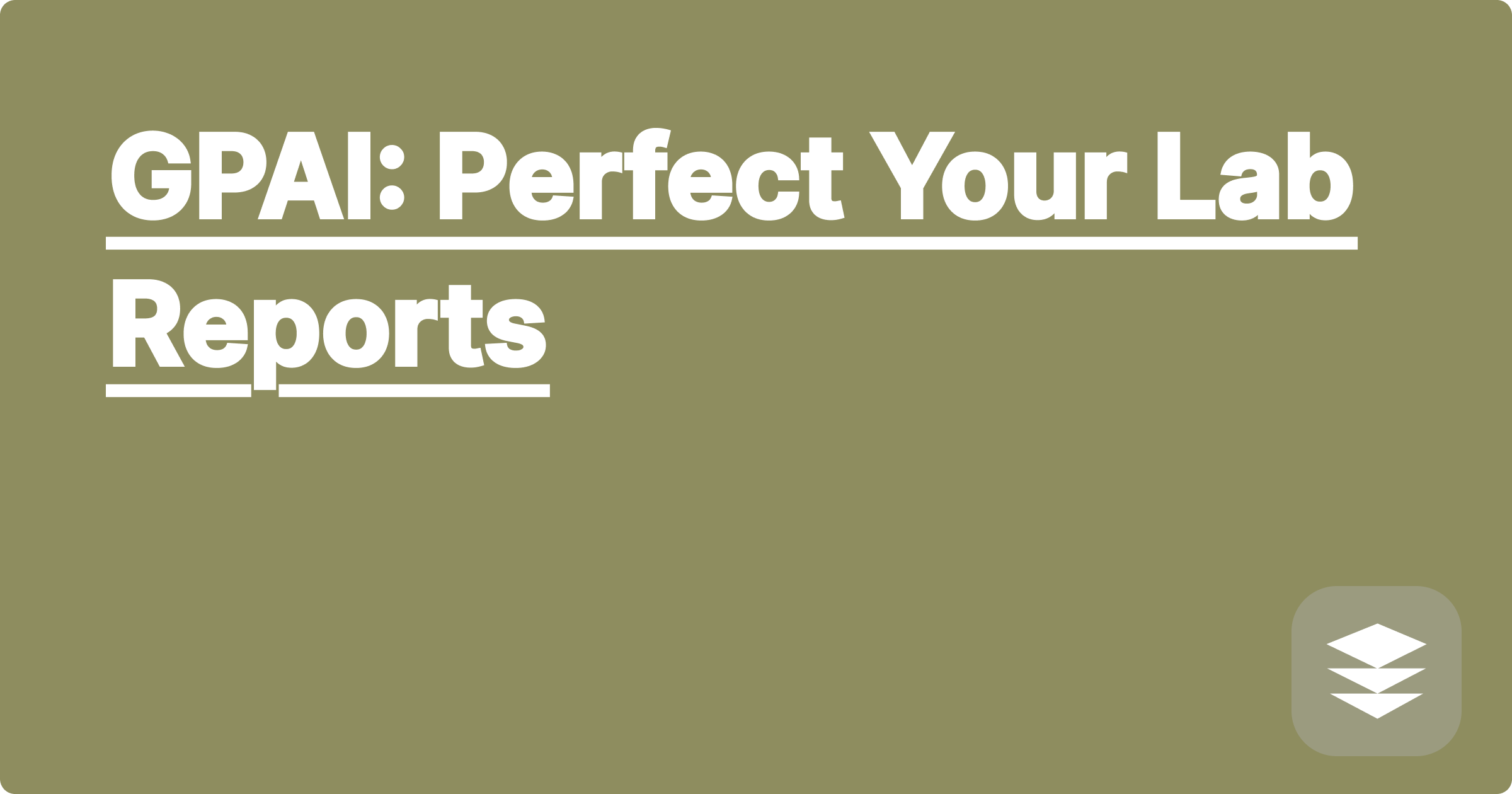
STEM fields demand rigorous documentation, and lab reports are the cornerstone of communicating scientific findings. However, crafting clear, concise, and comprehensive lab reports can be a significant hurdle for many students and researchers. The sheer volume of data, the intricacies of analysis, and the pressure to adhere to strict formatting guidelines can make the process daunting. Fortunately, advancements in artificial intelligence (AI) offer powerful tools to streamline and enhance lab report writing, allowing STEM professionals to focus on the core scientific work. AI can assist with everything from generating initial drafts and refining language to ensuring consistent formatting and even suggesting potential areas for improvement in experimental design.
This matters significantly for STEM students and researchers because effective communication is crucial for disseminating scientific knowledge. A well-written lab report not only demonstrates understanding of the experiment but also contributes to the broader scientific community. By leveraging AI tools, students can learn to articulate their findings more effectively, develop stronger scientific writing skills, and ultimately contribute more meaningfully to their respective fields. Furthermore, researchers can accelerate their publication process and ensure their work reaches a wider audience.
Writing a compelling and informative lab report requires a deep understanding of the scientific method, meticulous data analysis, and strong writing skills. Students often struggle with translating complex experimental procedures and results into clear, concise prose. Organizing the report logically, ensuring the proper use of scientific terminology, and adhering to strict formatting guidelines can be particularly challenging. Furthermore, the pressure to avoid plagiarism and present original work adds another layer of complexity. These challenges can be overwhelming, leading to frustration and hindering the learning process. The time-consuming nature of lab report writing can also detract from valuable time that could be spent on research and experimentation.
AI writing assistants like ChatGPT, Claude, and Wolfram Alpha can significantly alleviate these challenges. These tools can be used to generate initial drafts of different sections of the lab report, such as the introduction, materials and methods, and discussion. They can also assist with paraphrasing complex concepts, ensuring clarity and conciseness in the writing. Wolfram Alpha, with its computational capabilities, can be particularly helpful for analyzing data, generating graphs and tables, and even suggesting relevant formulas or equations. By providing a starting point and offering suggestions for improvement, AI empowers students to focus on the scientific content and learn the nuances of scientific writing more effectively.
Begin by clearly defining the purpose and scope of your experiment. This will provide a framework for the entire lab report. Next, gather all relevant data, including experimental observations, measurements, and calculations. Input this data into a chosen AI tool, such as ChatGPT or Claude, along with a brief description of the experiment. You can ask the AI to generate an initial draft of the introduction, outlining the background and objectives of the experiment. Then, provide the AI with the experimental procedure and ask it to generate the materials and methods section. For the results section, use Wolfram Alpha to analyze the data, generate graphs and tables, and perform any necessary calculations. Feed these results back into ChatGPT or Claude to generate a descriptive narrative of the findings. Finally, use the AI to help you formulate the discussion section, interpreting the results and drawing conclusions. Remember to carefully review and edit the AI-generated text to ensure accuracy and coherence.
Consider an experiment measuring the acceleration due to gravity. You can use Wolfram Alpha to calculate the theoretical value of g based on the local latitude and altitude. Then, input your experimental measurements into Wolfram Alpha to calculate the experimental value of g. You can then ask ChatGPT to incorporate these values into the results section, stating something like: "The experimentally determined value of g was found to be 9.78 m/s², compared to the theoretical value of 9.81 m/s² calculated using Wolfram Alpha based on the location's latitude and altitude." For a chemistry experiment, you can use Wolfram Alpha to balance chemical equations or calculate molar masses. You can then use ChatGPT to incorporate these calculations into the lab report, for example: "The balanced chemical equation for the reaction, as determined by Wolfram Alpha, is 2H₂ + O₂ → 2H₂O." These examples demonstrate how AI can be integrated seamlessly into the lab report writing process.
To effectively leverage AI in your STEM education and research, it's essential to understand its limitations and use it responsibly. AI tools should be seen as assistants, not replacements for critical thinking and scientific rigor. Always carefully review and edit the output generated by AI, ensuring its accuracy and relevance. Use AI to generate initial drafts and explore different phrasing, but don't rely on it to replace your own understanding of the subject matter. Developing a strong understanding of scientific principles and experimental design is crucial for interpreting AI-generated results and drawing meaningful conclusions. By combining the power of AI with your own scientific expertise, you can significantly enhance your lab report writing and contribute more effectively to the scientific community.
To conclude, embracing AI tools in STEM education and research can significantly improve the quality and efficiency of lab report writing. By understanding the capabilities and limitations of these tools, students and researchers can leverage them to enhance their scientific communication skills and contribute more meaningfully to their respective fields. Start experimenting with AI tools like ChatGPT, Claude, and Wolfram Alpha today and discover how they can transform your lab report writing process. Remember to focus on developing a strong understanding of the scientific method and to use AI responsibly as a tool to enhance, not replace, your own scientific thinking.
GPAI: Data Analysis Simplified
GPAI: Your Differential Equations Tutor
GPAI: Perfect Your Lab Reports
GPAI: Programming Homework Ace
GPAI: Your Physics Exam Partner
GPAI: Streamline Your Research
GPAI: Conquer Computer Science